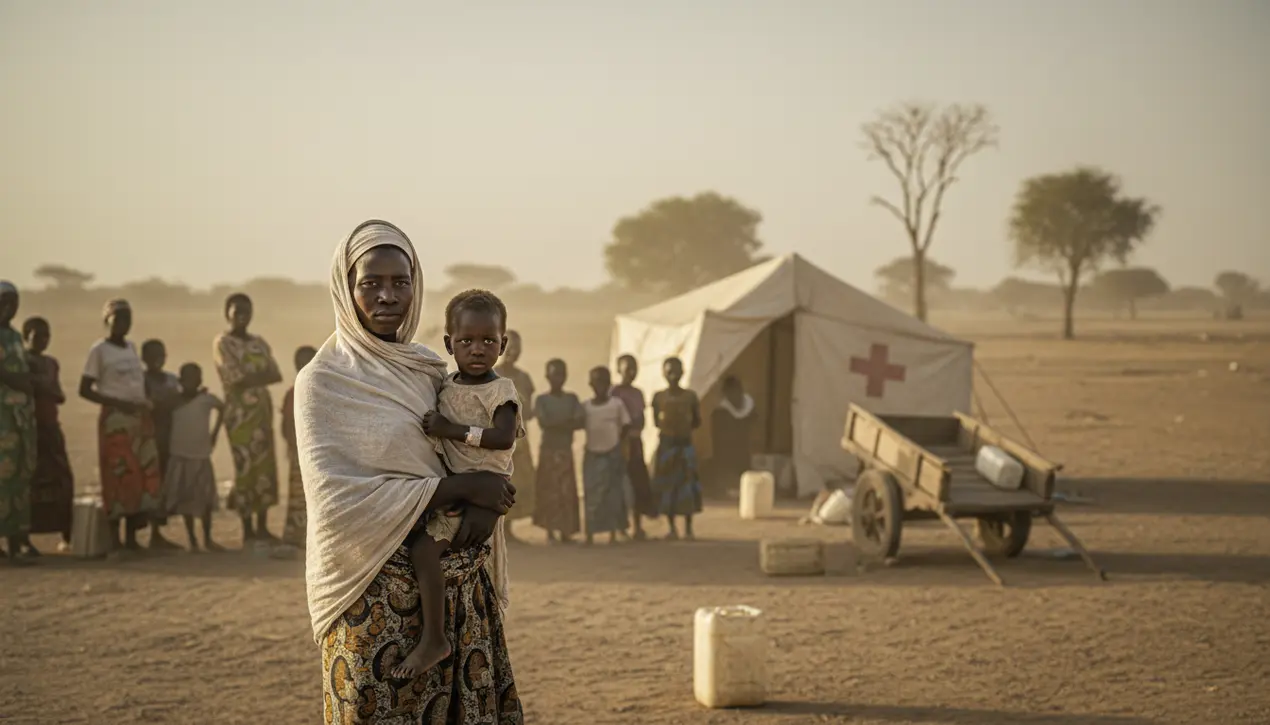
SciencemedicineGlobal Health Policy
The 2025 Future Perfect 25
RA
Rachel Adams
3 hours ago7 min read3 comments
When Vox’s Future Perfect section launched in 2018, it posed a deceptively simple question: what truly matters in the world that isn't already blanketing the headlines? That foundational query has guided years of coverage on everything from the existential shadows cast by artificial intelligence to the quiet challenges of living an ethical life, culminating in their annual Future Perfect 50 packages that honor influential figures in these critical spheres. But for 2025, the editorial compass has swung back to its core, homing in on what may be the most urgent, under-reported story of our time: the catastrophic squeeze on global health and development aid.This isn't merely a budgetary line item; it is a slow-motion unraveling of decades of human progress, a story told in the stark language of statistics that represent real lives. Global aid is trending downward just as human need skyrockets, a cruel divergence exacerbated in the United States by the evisceration of USAID, creating a perfect storm where shortfalls translate directly into rationed food, skeletal clinic hours, and fractured supply chains.The consequences are already etched into the global health landscape: routine childhood immunization, arguably the single most cost-effective public health intervention ever devised, has plateaued, leaving over 14 million 'zero-dose' children wholly unprotected against diseases like measles. Malaria, a relentless scourge, claimed an estimated 597,000 lives in 2023, its toll concentrated overwhelmingly in Africa among the youngest and most vulnerable, with conflict, climate shocks, and funding gaps blunting the impact of new tools.Even polio, a disease humanity was on the cusp of eradicating, now risks a tragic resurgence as its eradication program faces a devastating 30 percent budget cut in 2026. In the face of such daunting headwinds, despair would be an easy refuge.Yet, the 2025 Future Perfect 25 list is not a lament. It is a deliberate, hopeful pivot toward resilience, spotlighting 25 changemakers who are innovating and implementing with fierce determination to keep progress alive.They are organized into four essential categories that form a blueprint for action in an era of scarcity. First are the innovators who bend the cost curve, leveraging engineering and ingenuity to do more with less.This includes pioneers in AI-assisted drug discovery, which trims years and billions from development pipelines, and developers of next-generation vaccine technologies that can withstand less reliable cold chains, a critical innovation for reaching the last mile. Second are the movers and shakers who prevent vital institutions from atrophying under immense pressure.These are the strategic leaders within global health bodies and NGOs who fight to push scarce funds toward the highest-impact interventions, defending the unglamorous but essential backbone of public health: robust supply chains, vigilant disease surveillance, and the maintenance of basic infrastructure that prevents collapse at the worst possible moment. Third are the soldiers on the ground, the community health workers and local organizers embedded within the populations they serve.They are the ones who close the infamous 'implementation gap,' transforming grand, top-down plans into tangible action—convincing a mother to attend prenatal care, tracking down a zero-dose child, restoring basic mental health services, or enforcing environmental regulations that keep neurotoxins out of children's blood. Finally, there are the thinkers, the data-driven philosophers who rigorously answer the most critical question of this moment: how do we improve the most lives for every single dollar? They challenge prior assumptions with hard evidence, make difficult trade-offs explicit, and identify the interventions with the largest, clearest returns in terms of healthy life-years and human flourishing.Beyond this list, the project delves into deeply reported stories on the front lines of this crisis, from the dire global shortage of trained midwives to India's precarious role as the 'pharmacy of the world' and new, startlingly affordable methods to prevent child starvation. The Future Perfect 25, therefore, is more than a list; it is a 2025 answer to that original, guiding question. It asserts that the most important work in the world right now is being done by those who refuse to let progress backslide, who embody a pragmatic, resilient optimism in the face of retreating support, and who are proving that even in a leaner era, human ingenuity and compassion can still drive us forward.
#featured
#global health
#foreign aid
#innovation
#cost-effectiveness
#future perfect 25
#child mortality
#vaccination
#weeks picks news
Stay Informed. Act Smarter.
Get weekly highlights, major headlines, and expert insights — then put your knowledge to work in our live prediction markets.
Related News
Comments
Loading comments...
© 2025 Outpoll Service LTD. All rights reserved.